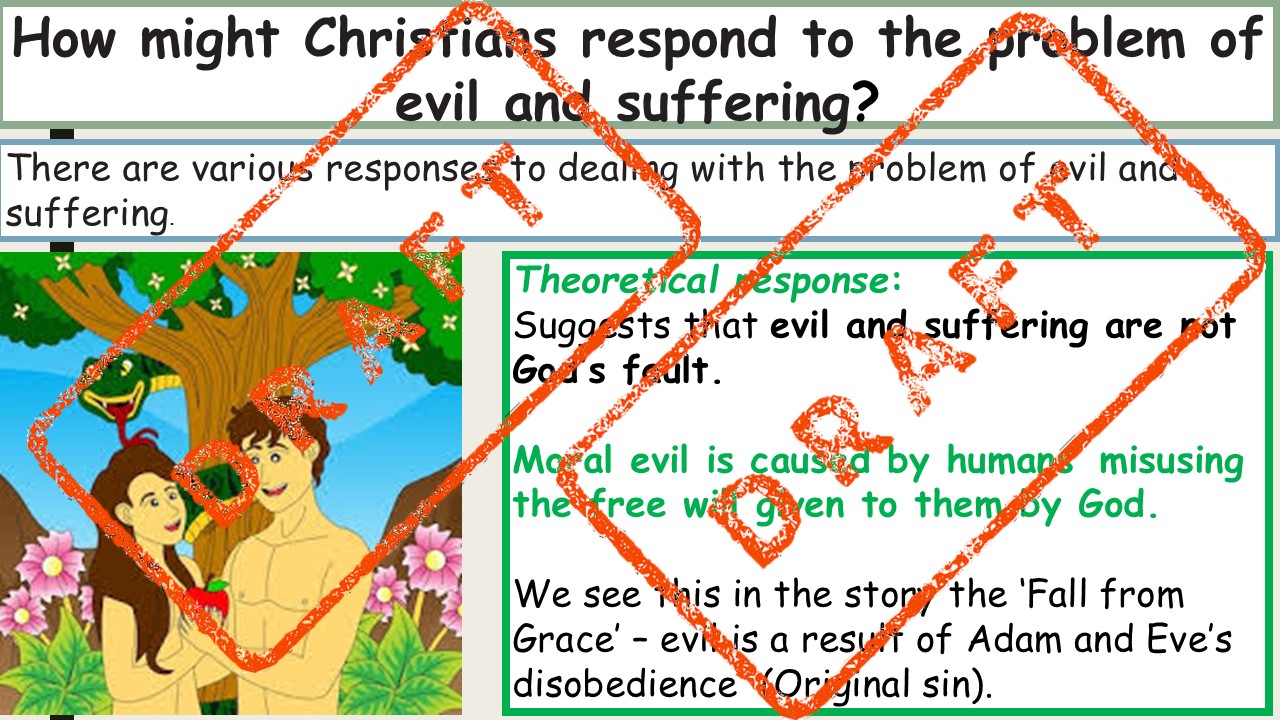




This lesson builds on prior learning about the problem of evil and suffering, enabling students to consolidate and apply their knowledge. Students will recap key content, including the Fall from Grace (Genesis), the story of Job, and St Augustine’s theodicy, exploring how each offers a response to the challenge of reconciling a loving, all-powerful God with the existence of evil. The main focus of the lesson is to prepare students to write a well-structured 12-mark evaluation in response to the question: “The existence of evil proves that God does not exist. Evaluate this statement.” Students will be supported in constructing balanced arguments, using religious teachings, examples, and personal reflection to form a justified conclusion.
This lesson includes a range of engaging and structured activities to support student learning.
- It includes a** PowerPoint presentation** that outlines the key content and learning objectives.
- A starter activity recaps prior knowledge from the scheme of work (SOW), helping students to connect new learning to what they already know.
- Throughout the lesson, questioning activities are used to promote discussion, check understanding, and encourage participation.
- Students will complete an exam/ deliberate practice question to develop their assessment skills and apply their knowledge.
- A model answer
- Differentiated student worksheet is provided with a variety of tasks to reinforce learning.
- The lesson concludes with a final activity that allows students to consolidate their understanding and reflect on what they have learned.
**Ideal For: **
• KS3 & KS4 RE departments
• New or non-specialist teachers
• Schools introducing world religions and philosophy to younger learners
Something went wrong, please try again later.
This resource hasn't been reviewed yet
To ensure quality for our reviews, only customers who have purchased this resource can review it
to let us know if it violates our terms and conditions.
Our customer service team will review your report and will be in touch.